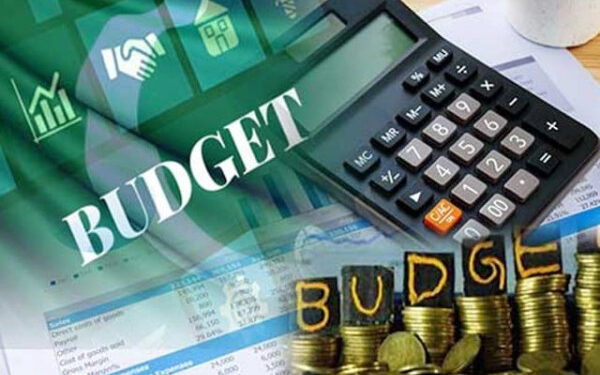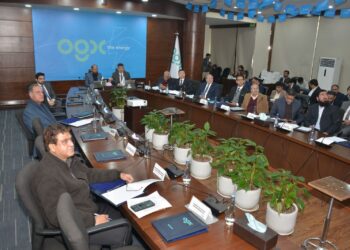Introduction: Budget 2025-26 Targets Economic Liberalization
ISLAMABAD – The federal government’s Budget 2025-26 has been unveiled with a clear focus on economic liberalization and structural reform. Among the most prominent features is the phased reduction in import duties, elimination of additional taxes, and the introduction of a simplified tariff slab structure. These steps are being promoted as a foundation for transitioning Pakistan towards a more competitive, free-market economy over the next five years.
While the policy direction has been praised by economists and reform advocates, the business community has voiced concerns over areas that remain unaddressed—particularly regarding income taxation and government expenditure. The budget, though ambitious, faces the dual challenge of satisfying fiscal discipline and encouraging private sector growth.
Key Budget Reforms: Simplified Tariffs and Tax Reduction
The centerpiece of the Budget 2025–26 is a plan to gradually reduce import duties across a wide range of goods, aiming to lower production costs, improve consumer choice, and align Pakistan’s trade policies with global standards. A streamlined tariff structure is also being introduced, aiming to make customs procedures easier for businesses while encouraging competitiveness in local markets.
Moreover, additional taxes and regulatory duties—long criticized for distorting market dynamics—are being phased out, creating a more transparent and investor-friendly taxation framework. These reforms align with recommendations made by the International Monetary Fund (IMF) and the World Bank for liberalizing Pakistan’s economy and improving the ease of doing business.
Income Tax Reform Lags Behind: Burden on Large Businesses Persists
Despite these advancements, no significant reductions were made to income tax rates, particularly for large businesses operating on thin margins. This has become a point of contention for corporate stakeholders, who argue that while indirect tax reforms are welcome, the heavy direct tax burden on profits continues to stifle business expansion and reinvestment.
Industry representatives have urged the government to reconsider income tax slabs, especially for manufacturing and export-oriented sectors, which are already struggling due to inflation, high energy costs, and global market fluctuations. Without a fair income tax structure, they argue, the intended benefits of trade and tariff reforms may not fully materialize.
Government Expenditure Target Set, But Structural Cuts Missing
Another major highlight of the budget is the goal to reduce government expenditure to 22.6% of GDP. While this target signals a move towards fiscal consolidation, no clear roadmap has been outlined for how the government plans to cut expenditures effectively.
Critics have pointed out that reducing government spending requires not just trimming excess costs but also addressing issues such as public sector inefficiencies, pension liabilities, and duplicative departments. Without structural reforms—such as downsizing ministries, improving public procurement practices, and digitizing governance—this target may remain theoretical.
Democratic Oversight Improves: Parliamentary Committee Plays Key Role
In a notable democratic development, the National Assembly Standing Committee on Finance conducted a clause-by-clause review of the Finance Bill for the first time in Pakistan’s parliamentary history. This unprecedented level of legislative scrutiny resulted in several positive amendments, including:
- Reduction of GST on solar panels, which is expected to boost clean energy adoption.
- Reinforcement of taxpayer rights, providing clearer safeguards and mechanisms for dispute resolution.
- Amendments to streamline audit procedures and reduce arbitrary tax notices.
Experts have welcomed this shift, noting that democratic engagement and legislative oversight are crucial for transparent and accountable budget-making.
Expert Opinions: Parliamentary Budget Office Needed
Leading economists have highlighted the need for a Parliamentary Budget Office (PBO)—a non-partisan body responsible for conducting independent fiscal analysis and supporting evidence-based decision-making. Such institutions are standard in many developed democracies and play a crucial role in ensuring that budget proposals are grounded in data rather than political convenience.
Without such a body, they argue, Pakistan remains vulnerable to ad hoc fiscal decisions that can derail long-term planning and reduce policy predictability.
Mixed Reactions from Business Community
The business community has offered a mixed reaction to the budget. While the reduction in import duties and elimination of some taxes were lauded, the lack of broader tax reform, especially concerning corporate and personal income tax, drew criticism.
According to the Karachi Chamber of Commerce and Industry (KCCI), the budget is “a step in the right direction, but not a comprehensive solution.” Business leaders are calling for a wider economic vision that includes:
- Enhanced access to credit for small and medium enterprises (SMEs)
- Tax incentives for exporters and technology firms
- Policy certainty to attract long-term investment
- Streamlining of the Federal Board of Revenue (FBR) to reduce harassment and improve compliance
Focus on Renewable Energy: GST Cut on Solar Panels
One of the most appreciated budget measures was the reduction in GST on solar panels, a move aimed at promoting green energy and reducing dependence on fossil fuels. With Pakistan facing an energy crisis, coupled with frequent blackouts and high electricity tariffs, solar energy adoption is seen as a vital strategy.
This move is expected to encourage both residential and commercial users to invest in renewable energy systems, reducing the burden on the national grid while also helping to curb carbon emissions.
Implications for Trade and Industrial Growth
The simplified tariff structure is likely to boost trade and industrial output by reducing the cost of imported raw materials and machinery. It may also:
- Encourage technology transfer
- Improve supply chain efficiency
- Promote local manufacturing by making intermediate inputs more affordable
- Attract foreign direct investment (FDI) by improving Pakistan’s cost competitiveness
However, analysts caution that these benefits can only be realized if bureaucratic red tape is reduced and policy implementation is consistent.
Challenges to Watch: Inflation, Currency Pressure, and Revenue Shortfalls
While the reforms are promising, several macroeconomic risks could hinder their success:
- High inflation may offset the gains from tariff reductions, especially if food and fuel prices remain volatile.
- Depreciation of the rupee could make imports expensive despite lower duties, negating some benefits of trade liberalization.
- The fiscal deficit may widen if revenue from sales tax and regulatory duties drops sharply without a matching rise in direct taxes.
These concerns highlight the need for balanced policymaking, ensuring that short-term reforms do not compromise long-term economic stability.
Conclusion: A Cautious Step Toward Economic Freedom
The Budget 2025–26 represents a positive but cautious step towards economic liberalization. By reducing tariffs and removing tax distortions, the government has sent a signal that it is willing to align Pakistan’s economic policies with global best practices. However, the absence of direct tax relief, the lack of a clear plan to downsize government spending, and business community apprehensions indicate that much work remains to be done.
For these reforms to truly succeed, they must be accompanied by broader structural changes, deeper democratic oversight, and a sustained commitment to transparency, equity, and growth-oriented fiscal management.

























